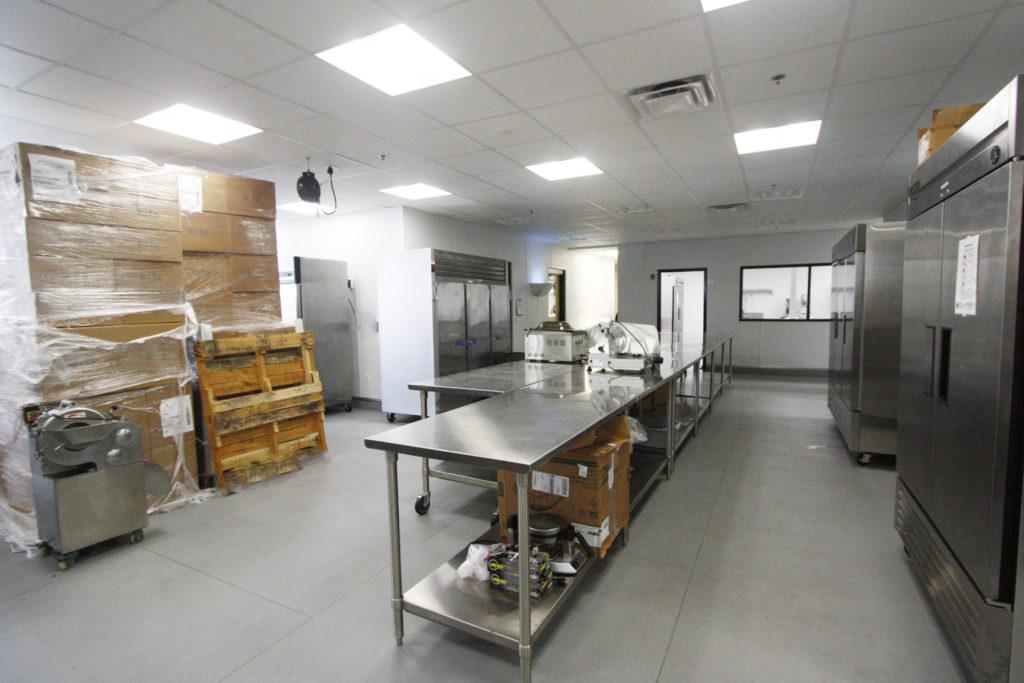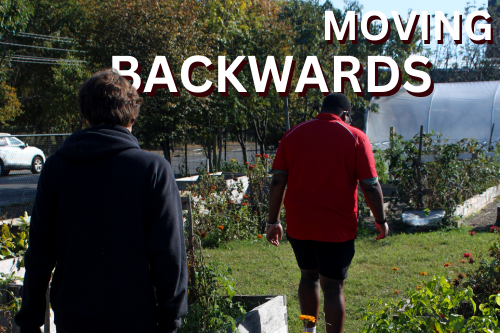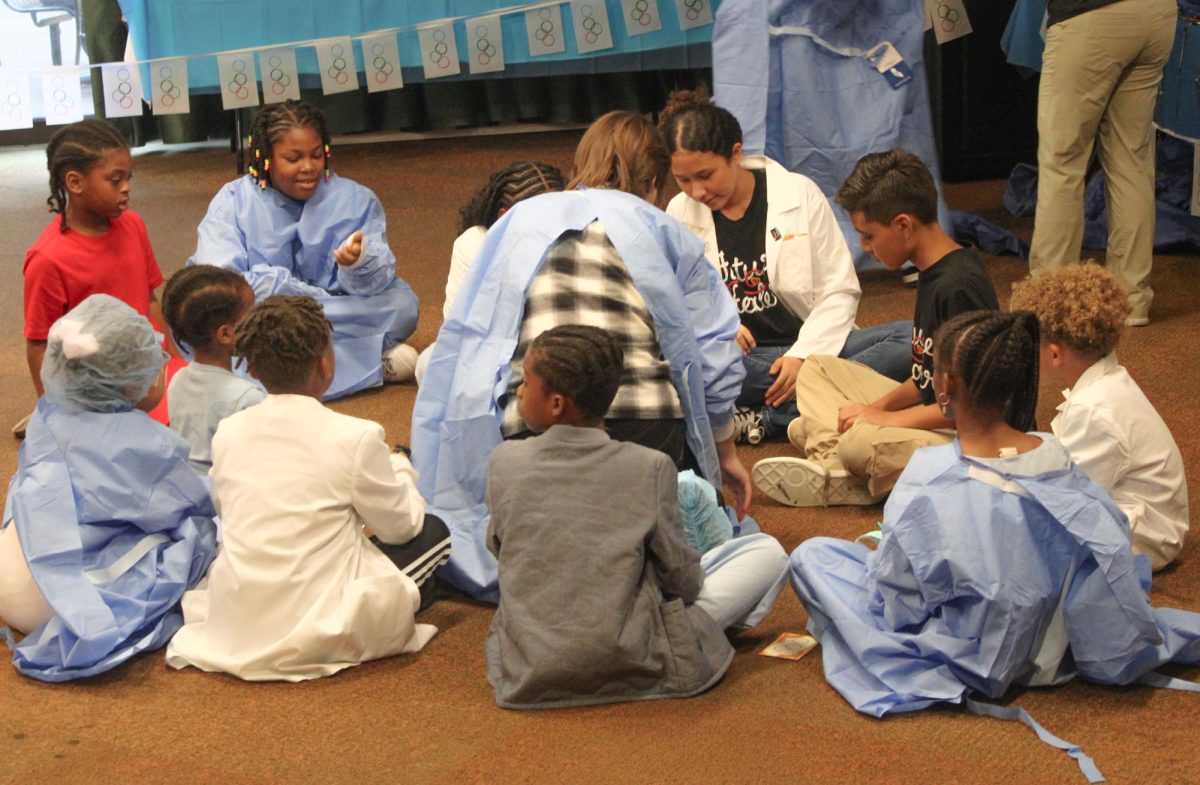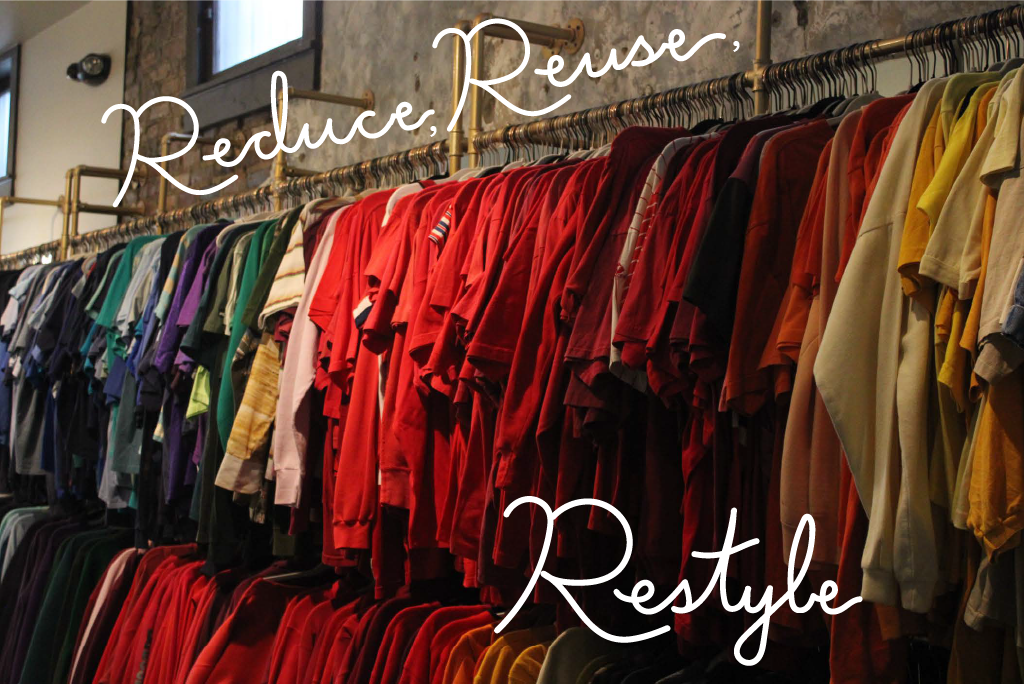Emie Dunagan wiped beads of sweat from her forehead as she opened the oven to reveal the foundation of her project: a sheet of chocolate cake. She had to work quickly in order to get the cake to the wedding on time. Only 14-years-old at the time, Dunagan beamed at the thought of how proud her aunt would be when she arrived with the beautiful cake.
But, as she rapidly built up the base, the unspeakable occurred: an implosion. The soft cake sighed and began to fall in on itself, breaking under the pressure. As someone with no formal culinary training – and this being her first wedding cake– Dunagan was perplexed. She grasped onto what knowledge she had gained in her lifetime of baking and put the pieces together – literally. She rebuilt the cake in a fashion that allowed it to withstand its own weight, then stepped back to relish the o
ncoming wave of relief. The final product was a masterpiece: a total of 16 inches wide at the base, frosted in a layer of intricate white icing. Dunagan was flooded with pride. She had finally perfected her first wedding cake, and just in time to make it to the wedding.
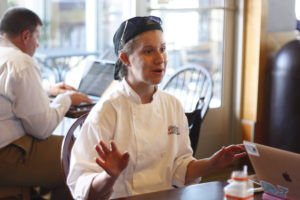
Four years later, Dunagan, now 18, is still creating cakes, but on a much larger scale. She has relocated from her aunt’s home kitchen to the industrial kitchen incubator located in West Louisville: Chef Space. Chef Space is a facility that supplies entrepreneurial chefs with the low-cost space, equipment, and support they need to develop their businesses. Since Nov. 2015, it has already benefitted at least 20 start-up businesses.
Dunagan started growing her business, Em’s Delights, independently before she began working with Chef Space. She came in already having her own website and a business strategy, but Chef Space helped her gain new connections she wouldn’t have formed otherwise. Because of Chef Space’s business aid, Emie was given the opportunity to collaborate with the popular Louisville coffee chain Heine Brothers’ in what she said is “the biggest thing that’s happened to me.”
Now her products are sold in 11 Heine Brothers’ locations, which she described as a struggle and a triumph.
“I spend hours creating products for them,” Dunagan said. “It’s a lot to handle, but I feel I’m doing all right. This experience has taught me extreme amounts of diligence.”
This story is common among her colleagues of all ages and backgrounds, a “family” of entrepreneurs who base their businesses at Chef Space. Opened by Community Ventures, a Kentucky nonprofit with support from local and federal grants, Chef Space is based in the former Jay’s Cafeteria and is part of a revitalization effort in the Russell neighborhood. Modeled after a similar project in Washington, D.C., the kitchen incubator has nurtured businesses like LuCretia’s Kitchen, owned by Lucretia Thompson, who practically grew up in the kitchen, given that her grandfather owned a barbecue restaurant. Her family’s history in the business, specifically in soul food, inspired Thompson to become a chef.
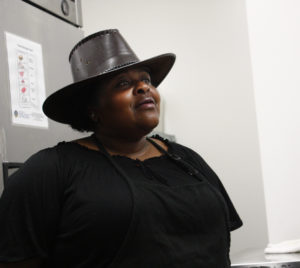
Thompson has dedicated the last few years to developing her business, creating her products in a large kitchen inside of Chef Space that she shares with multiple chefs. But her culinary journey started on a much smaller scale.
She drew inspiration from the memory of a younger version of herself sitting on the counter of her grandparents’ kitchen, pulling freshly harvested green beans out of a wicker basket one by one. She remembers breaking off the stem of each vegetable as her grandfather stood across the kitchen, focused on seasoning pork to be smoked and pulled. The smell of tangy spice floated from room to room, contrasting with the fresh scent of the greens. She turned and smiled at her mother, who was stirring a pot of dark, sweet-scented barbecue sauce that they called “liquid gold.” Her mother playfully warned her to back away, or else she would fall straight into the large pot.
It was in that kitchen Thompson fell in love with cooking, particularly the rich and comforting soul food that she creates today. She continues the legacy that her grandfather started with the help of Chef Space. The once smiling little girl is now a woman acquiring her own kitchen and restaurant space.
“It teaches you everything you need to know, and gets your product out on the shelf,” Thompson said. “Whatever level you’re at with your business – whether your level is a food truck, or if they already have one and need somewhere to prep cook – it fits everyone who has a desire to go to the next level.”
Chef Space members pay a monthly fee of $600-$850 for unlimited access to kitchen appliances and equipment. Many other kitchen rental businesses charge the same price or more for hourly services, while Chef Space allows workers to come in 24 hours a day, seven days a week to use the kitchen. With a membership, Chef Space offers business consultation, technical assistance, and marketing help. Chef Space has even historically been willing to work with specific financial situations, like it did with Dunagan when she was in high school and not making a regular salary. This economic availability and low barrier of entry allows for up-and-coming businesses to have a jump start into the highly competitive food industry.
Chef Space’s financial flexibility has allowed for a variety of entrepreneurs to improve their products and expand their businesses, which impacts the surrounding neighborhood. West Louisville, where the facility is located, is a severe food desert. Food deserts are areas, typically located in large cities, where there is a limited amount of healthy food options like grocery stores and farmers’ markets. The restaurants closest to Chef Space are Kentucky Fried Chicken and Papa John’s Pizza, and both are more than five blocks away. These restaurants are also both fast-food companies known for offering foods high in sugar and fat. While restaurants are scarce in this area, there are also problems finding grocery stores. The closest grocery store is Bismillani Food Mart, a small family business about four blocks away from Chef Space.
This lack of nutritious options can cause residents in food deserts to suffer from health issues, such as high cholesterol and diabetes. A 2006 study by the Louisville Metro Health Department stated, “In West Louisville, an area considered one of Louisville’s ‘food deserts,’ 37% of residents report having high blood pressure, 74% report being overweight or obese, and 12% report having diabetes.”
Cooks at Chef Space are fighting to diminish this problem by providing a home to multiple companies that create healthy, fresh foods for locals: V-Grits serves vegan food, Farm to Baby Louisville creates healthy, allergen-free baby foods, and Elixir Kombucha specializes in kombucha tea, a fermented tea known for benefitting digestive health. This variety of nutritious options is unprecedented in this area, and it brings a more consumer-friendly atmosphere to the market. Some businesses serve food at the Chef Space building, giving the surrounding community a place to receive easily accessible, healthy foods.
As a way to make a difference in the food community, Giselle Edwards, a chef working in Chef Space, created Younique Soul, a company that focuses on creating healthier recipes for traditional soul foods.
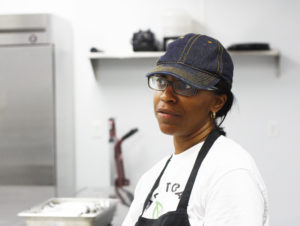
“My business partner is diabetic, so we have to make food that she can eat that’s not going to harm her, so we do a lot of healthy soul food,” Edwards said.
In order to achieve her goal, Edwards’ brand incorporates spices and ingredients to create dishes that mimic the taste of traditional soul foods. However, they don’t use the same amount of grease and oil typically present in fried foods.
Another factor that enables Chef Space’s creative environment is the diversity among its members. Collaboration among members inspires new, innovative products. For example, member Zac Caldwell, who runs a specialty jelly business called Caldwell’s Quirky Cookery, is currently working with Elixir Kombucha to create a kombucha jelly. Experimental ventures like this one are a regular occurrence at Chef Space.
Caldwell cited another collaboration with Eric Graeser of The Missing Link, a charcuterie and butchering company. They “teamed up to make bourbon smoked bacon a couple of months ago, and it was very successful,” Caldwell said. “That community is vital. I would not be as successful as I am without help from all of the other people in the kitchen.”
Entrepreneurs who work at Chef Space describe the facility’s atmosphere as one that fosters that creativity collaboration, consistently helping each other improve in the busy kitchen. Inside, temperature is usually high in Thompson’s workspace as sweaty workers try to simultaneously wash dishes, bread chicken, and locate the last batch of wings. Thompson has found that this is when LuCretia’s Kitchen thrives.
“We keep the atmosphere going whether somebody has the joke for the day or somebody’s singing,” LuCretia said. “Whatever it may be, it’s a family atmosphere here, and we’re all trying to get to the next level.”
Some members at Chef Space have reached a level of profitability that now allows them to pursue their own work spaces. Caldwell is currently working to move out of Chef Space and to get his own equipment. Emie Dunagan was recently given the keys to what will become her bakery in the Portland neighborhood. LuCretia Thompson is working to get her own building so she can start selling her foods to a wider range of people. Chef Space has drawn them closer to their end goal of independence and production on a larger public scale.
Members say Chef Space success stories don’t just come of a result of their access to resources, but unique ability to band entrepreneurs together to encourage, empower, and support one another.
“Seeing how close knit we’ve become since there were eight of us to now 40, it’s so one-on-one with each member,” Dunagan said. “We’re all so diverse that we can each really learn from one another.” •
[soundcloud url=”https://api.soundcloud.com/tracks/304650732″ params=”auto_play=false&hide_related=false&show_comments=true&show_user=true&show_reposts=false&visual=true” width=”100%” height=”225″ iframe=”true” /]


